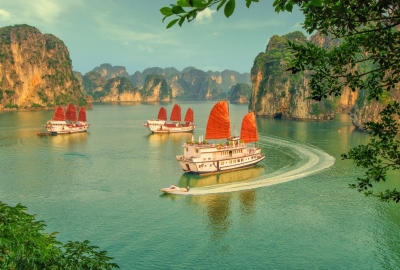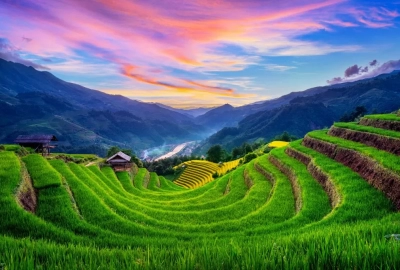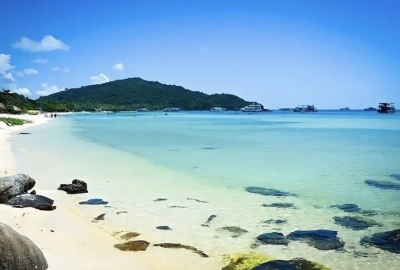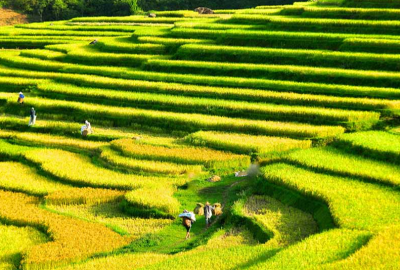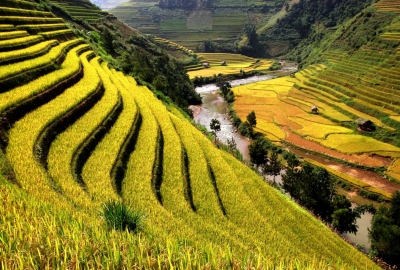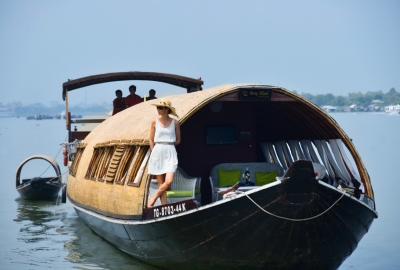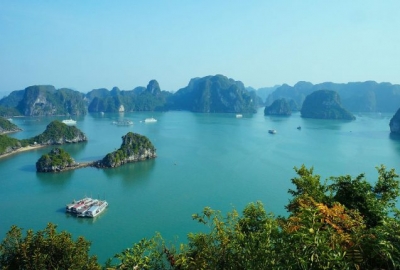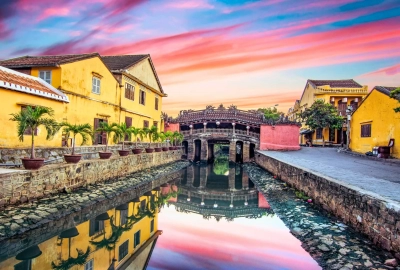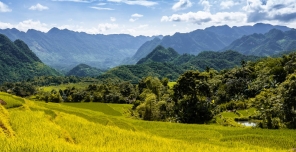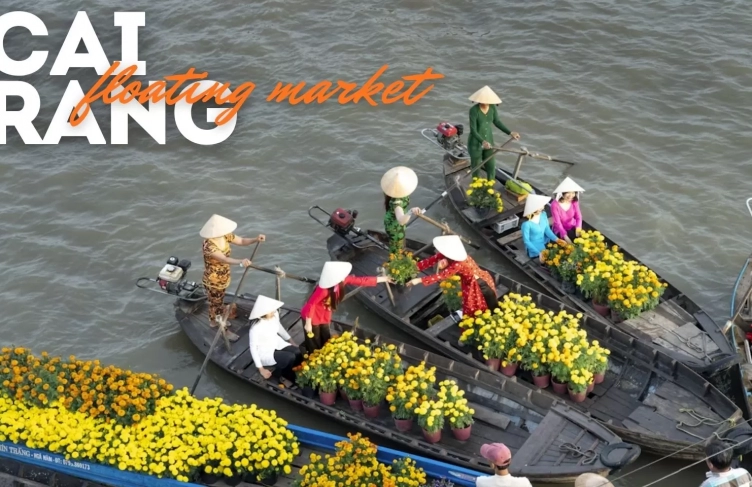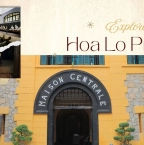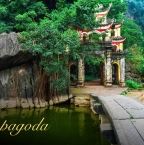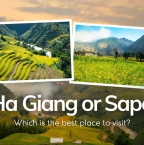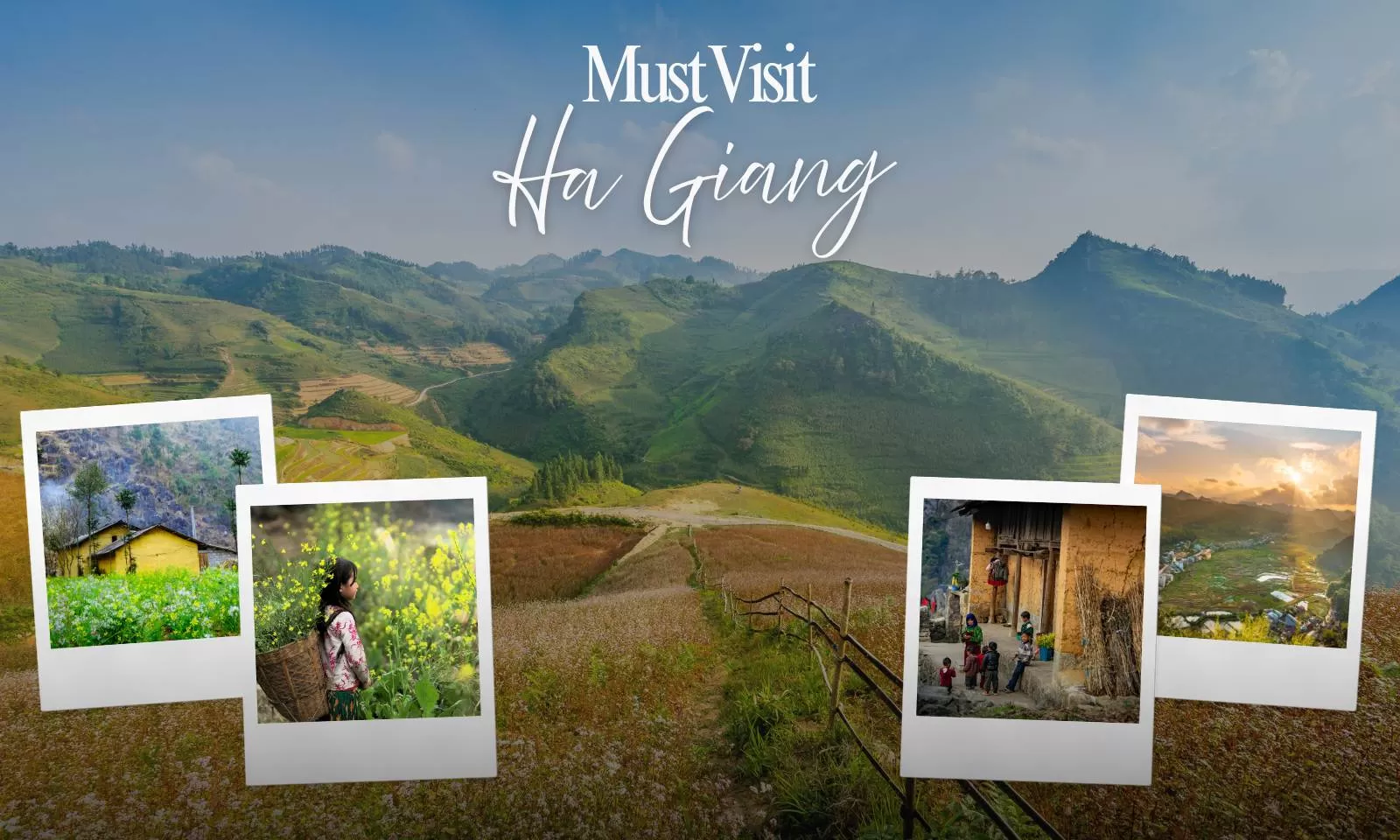
Top 7 must-visit tourist attractions in Ha Giang
If you're seeking raw beauty and cultural depth, Ha Giang is the perfect escape. This guide to the top tourist attractions in Ha Giang will take you through its iconic landscapes, from limestone peaks to quiet villages nestled in the northern highlands.

Ha Giang is a mountainous province in northern Vietnam, renowned for its rugged landscapes, twisting mountain passes, and vibrant ethnic cultures. From the breathtaking Ma Pi Leng Pass to the colorful Dong Van Sunday Market, tourist attractions in Ha Giang offer a unique mix of natural beauty and cultural richness.
This Ha Giang travel guide will help you plan your journey and understand why this region is a must-visit for nature lovers and adventure seekers. Keep reading to explore the top tourist attractions in Ha Giang and learn how to make the most of your unforgettable trip.
Table of Contents
Why visit Ha Giang?
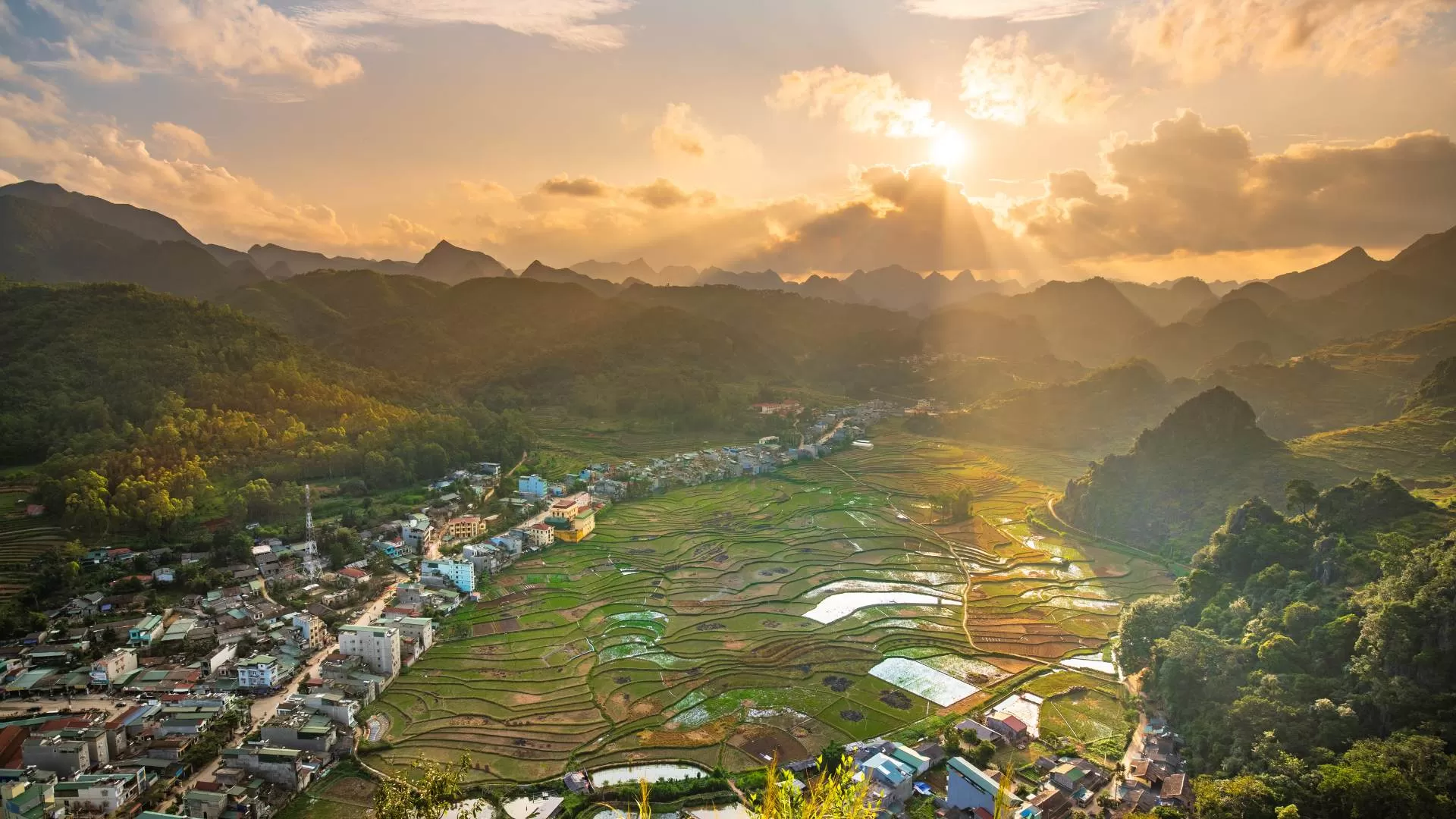
Situated in Vietnam’s far north, Ha Giang is renowned for its dramatic mountain scenery, winding roads, and pristine natural environment. Unlike more crowded tourist spots, tourist attractions in Ha Giang offer an authentic and unspoiled experience, with stunning views of limestone peaks, terraced rice fields, and deep valleys. Each season reveals its own unique beauty—from the pink hues of buckwheat flowers in autumn to the golden tones of the rice harvest in late summer.
Beyond its landscapes, Ha Giang is home to diverse ethnic communities with rich cultural traditions. Visitors can explore remote villages, experience colorful local markets, and witness traditional ways of life that have remained unchanged for generations. For adventurers, photographers, and culture enthusiasts, Ha Giang promises a journey filled with discovery, connection, and unforgettable scenery.
How to get to Ha Giang
Getting to Ha Giang is an adventure in itself, and you have several options depending on your budget, time, and travel style. Here’s a breakdown of the most popular ways to reach this remote destination:
By bus
The most common and budget-friendly way to reach Ha Giang from Hanoi is by sleeper bus. These buses operate daily and offer a comfortable overnight journey of around 6 to 7 hours. Departing mostly in the evening, they allow travelers to rest during the trip and arrive early in Ha Giang, ready to start exploring without losing a day. This option is convenient for solo travelers and those who want to save on accommodation costs.
By private car
For a more personalized experience, Hanoi Voyages offers private tours to Ha Giang, including the iconic Ha Giang Loop, with an English-speaking guide and private driver. With comfortable transport and expert guidance, you'll be free to uncover the region’s stunning landscapes and hidden cultural treasures without the stress of navigating unfamiliar roads. Once you arrive, you'll be ready to start exploring the best Ha Giang tourist attractions nestled among the mountains and valleys.
Top 7 tourist attractions in Ha Giang
Ha Giang is truly a treasure trove of awe-inspiring landscapes and rich cultural heritage. From towering limestone mountains and expansive rice terraces to serene rivers and vibrant ethnic markets, these seven tourist attractions in Ha Giang capture the essence of what makes this region so special. This selection is an essential part of any Ha Giang travel guide, designed to help you uncover the best spots that Ha Giang has to offer in this comprehensive Ha Giang travel guide.
Ma Pi Leng pass
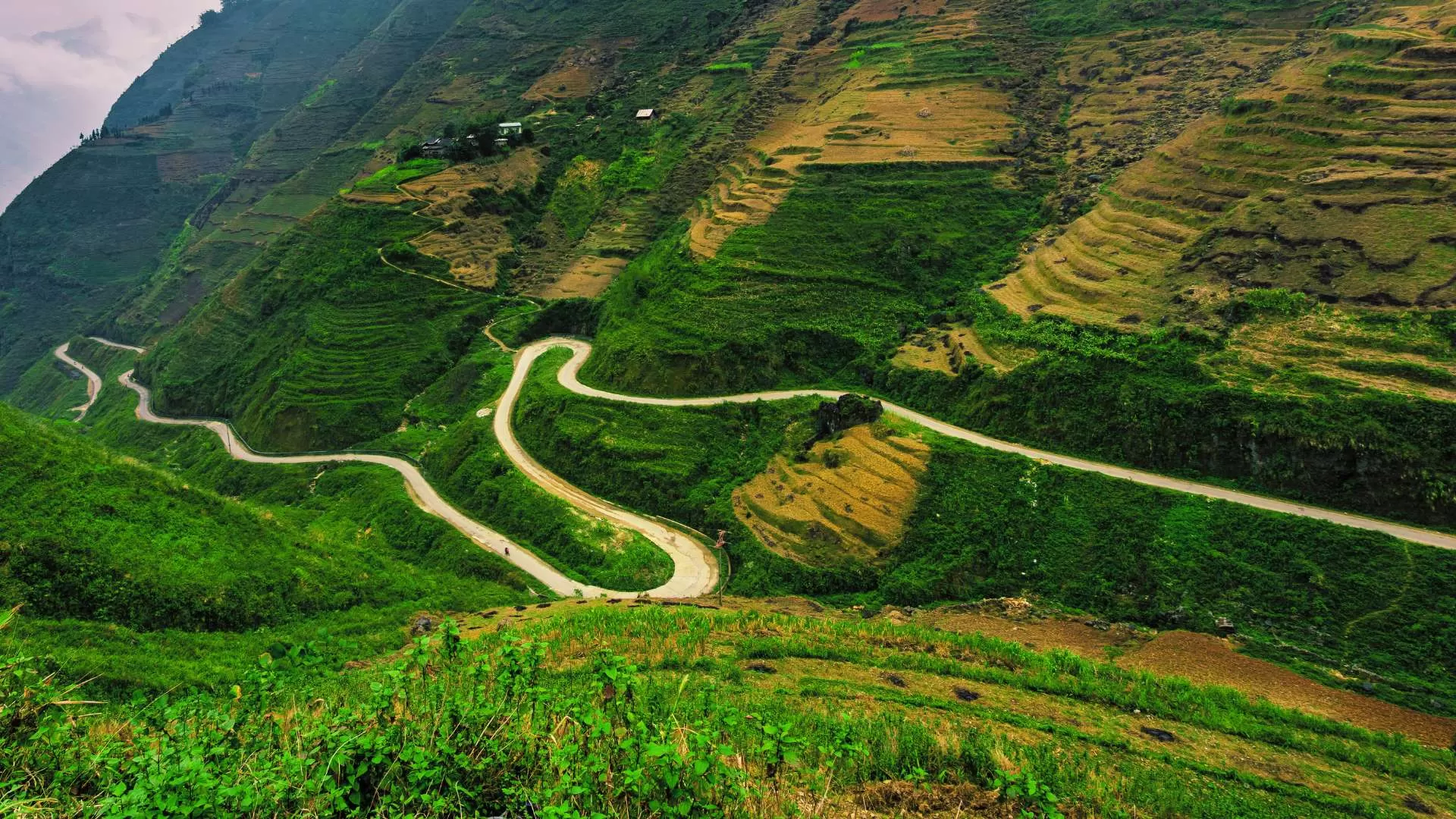
Considered one of the “Four Great Passes” of northern Vietnam, Ma Pi Leng Pass is legendary for its dramatic cliffs and sweeping vistas. The road snakes along steep mountainsides, providing jaw-dropping panoramic views of the deep Nho Que River canyon far below. This spot is a favorite for photographers and adventure travelers alike, offering an unforgettable sense of scale and natural grandeur. As one of the most iconic tourist attractions in Ha Giang, this pass is a must-see on any itinerary.
Lung Cu flag tower
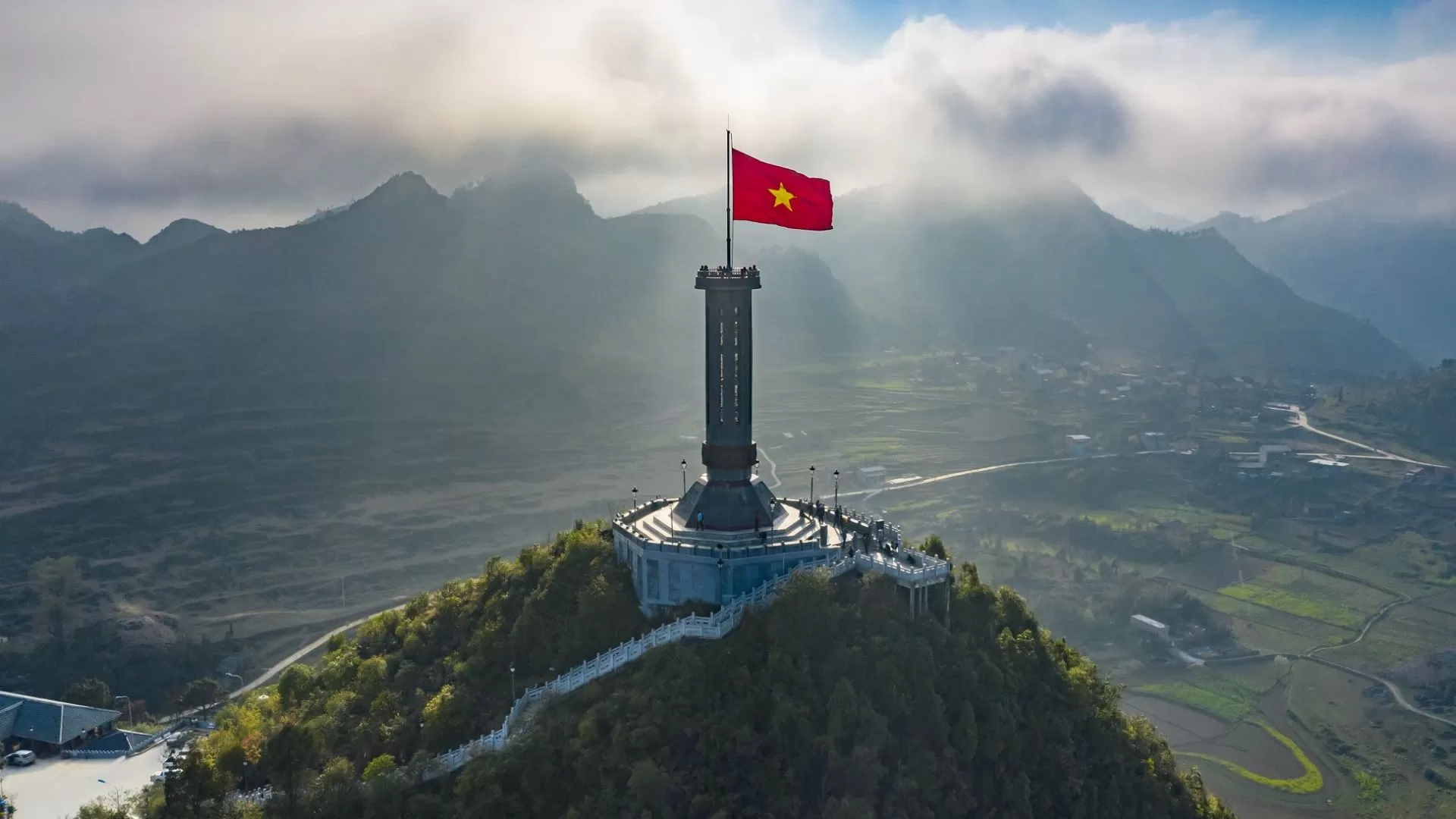
Located at Vietnam’s northernmost tip, Lung Cu Flag Tower is not just a landmark but a powerful national symbol. Climbing to the top rewards visitors with breathtaking views over rolling terraced fields and scattered ethnic villages stretching towards the Chinese border. The tower itself is steeped in history and patriotism, making it a meaningful stop on any Ha Giang itinerary.
Hoang Su Phi rice terraces

The rice terraces of Hoang Su Phi are a masterpiece of agricultural art, carved meticulously into the hillsides by local ethnic minorities over generations. Especially during the harvest season between September and October, the golden-yellow terraces create a mesmerizing, patchwork-like landscape that is both peaceful and inspiring. This area offers wonderful opportunities to learn about traditional farming methods and rural life.
Tham Ma pass
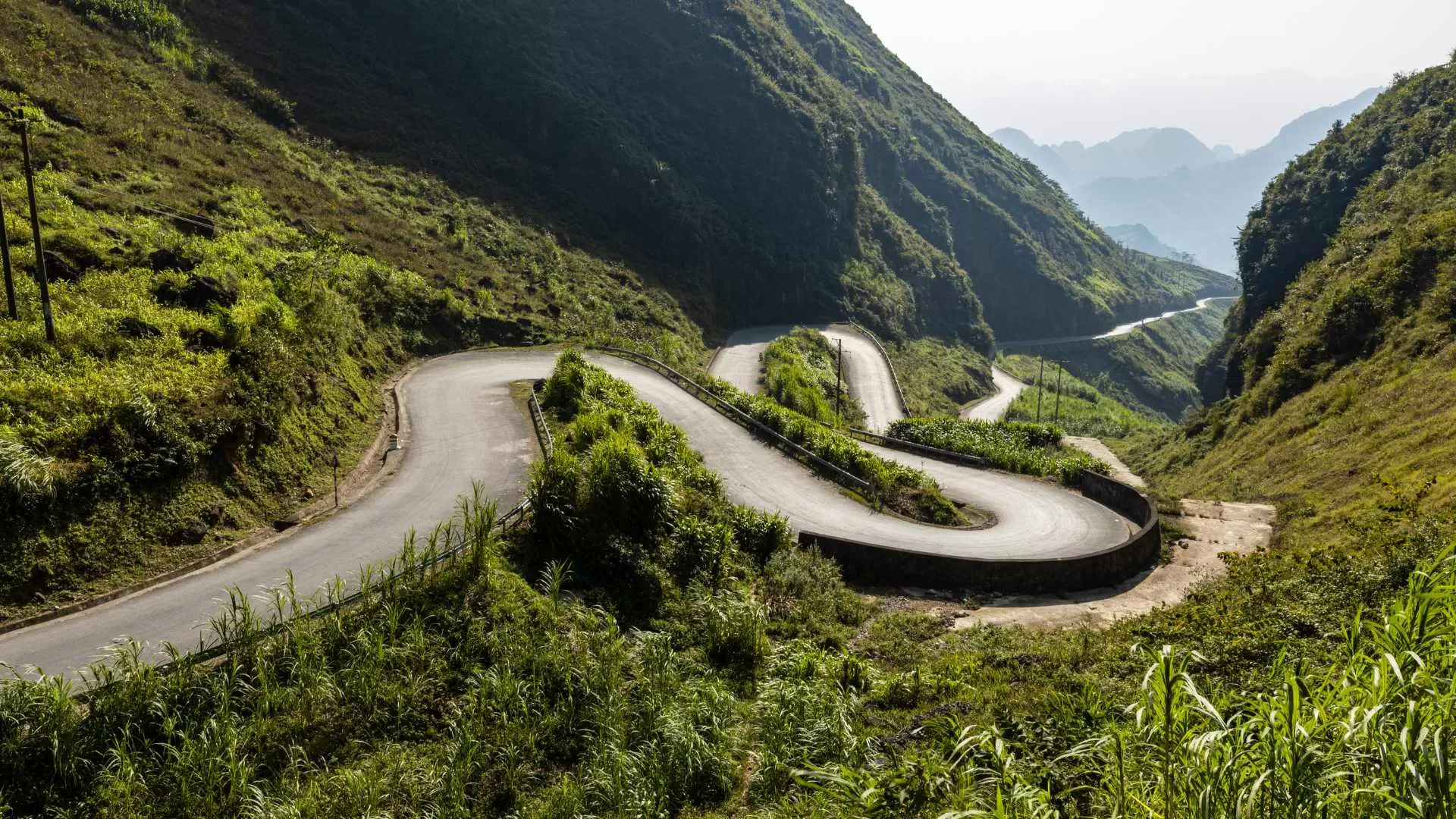
For thrill-seekers and road trippers, Tham Ma Pass offers an exciting challenge. This narrow, winding mountain trail zigzags through rugged limestone formations and steep valleys, giving travelers a real taste of adventure. The pass is not just about the ride—along the way, there are countless spots perfect for stopping to admire the wild and untamed beauty of Ha Giang’s highlands.
Dong Van karst plateau geopark

A UNESCO-recognized geopark, Dong Van is a geological marvel characterized by jagged limestone peaks, deep canyons, and otherworldly rock formations. Beyond its natural wonders, the geopark is a cultural hub where visitors can explore bustling local markets and immerse themselves in the traditions of ethnic minorities like the H’mong, whose customs and crafts add vibrant color to the region.
Nho Que river

The emerald waters of Nho Que River carve a stunning path through deep gorges and limestone cliffs, creating one of the most picturesque natural scenes in Ha Giang. Taking a boat trip along the river offers a serene escape from the busy mountain roads, allowing you to relax while soaking in the peacefulness and grandeur of the surrounding landscape.
Chieu Lau Thi peak
Chieu Lau Thi is a less-traveled peak that beckons hikers and cloud chasers with promises of spectacular vistas. Trekking to the summit rewards visitors with sweeping views over the mountainous terrain and the chance to witness sea-of-clouds phenomena on misty mornings. The tranquility and remoteness of this peak make it an ideal spot for those looking to connect deeply with nature away from the crowds.
More details in: Northern Vietnam Travel - Through Mountains and Traditions
What to eat in Ha Giang
After a day exploring the tourist attractions in Ha Giang, don’t miss the chance to indulge in the region’s flavorful dishes. Influenced by the region’s ethnic diversity and mountain lifestyle, local dishes here are both flavorful and culturally rich.
Xoi ngu sac - Five-colored sticky rice
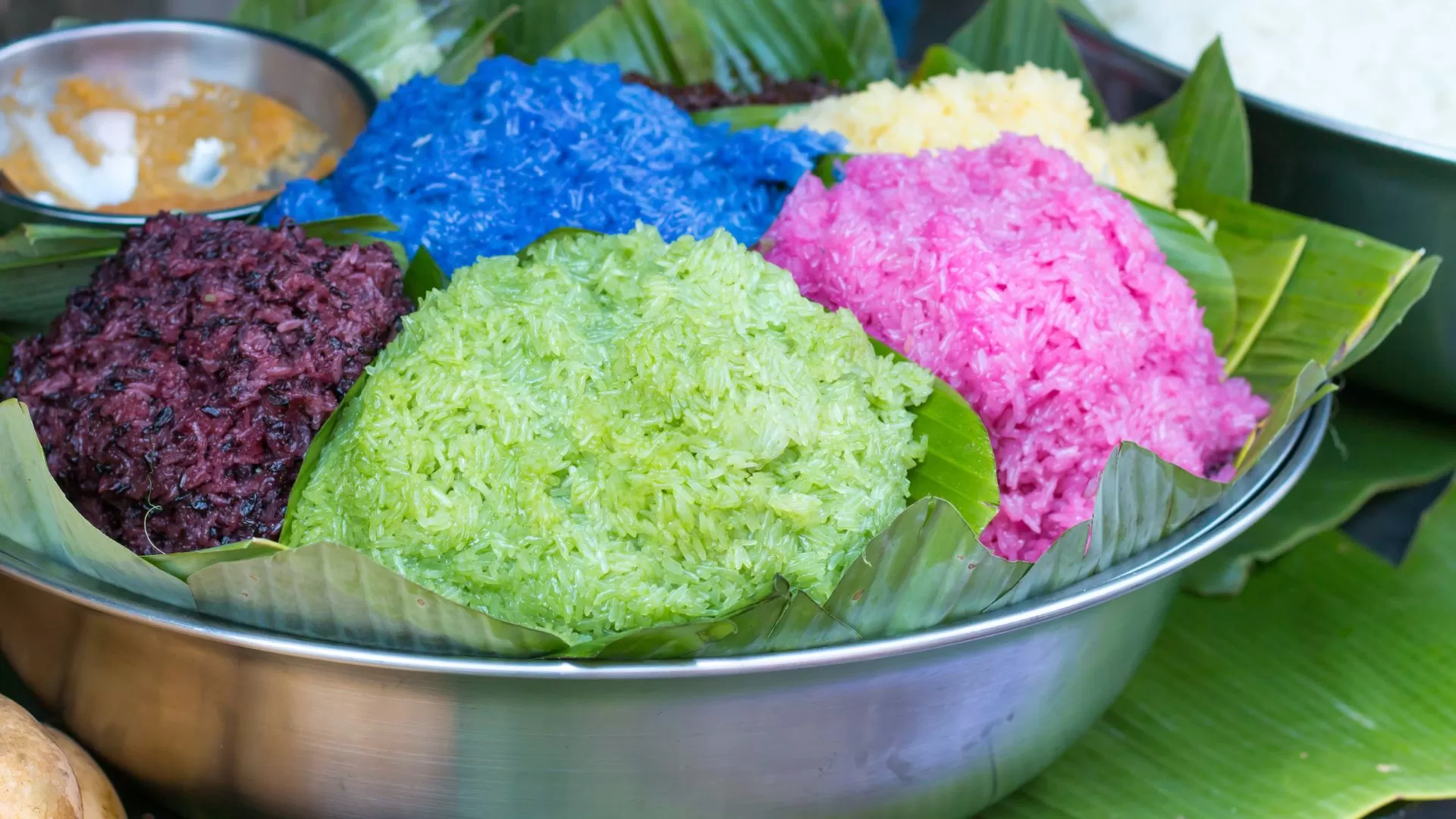
This vibrant sticky rice dish is naturally dyed with local plants and flowers, commonly seen during festivals or in traditional markets. Each color has symbolic meaning and reflects ethnic culture in the region.
Thang Co (Traditional H’mong stew)
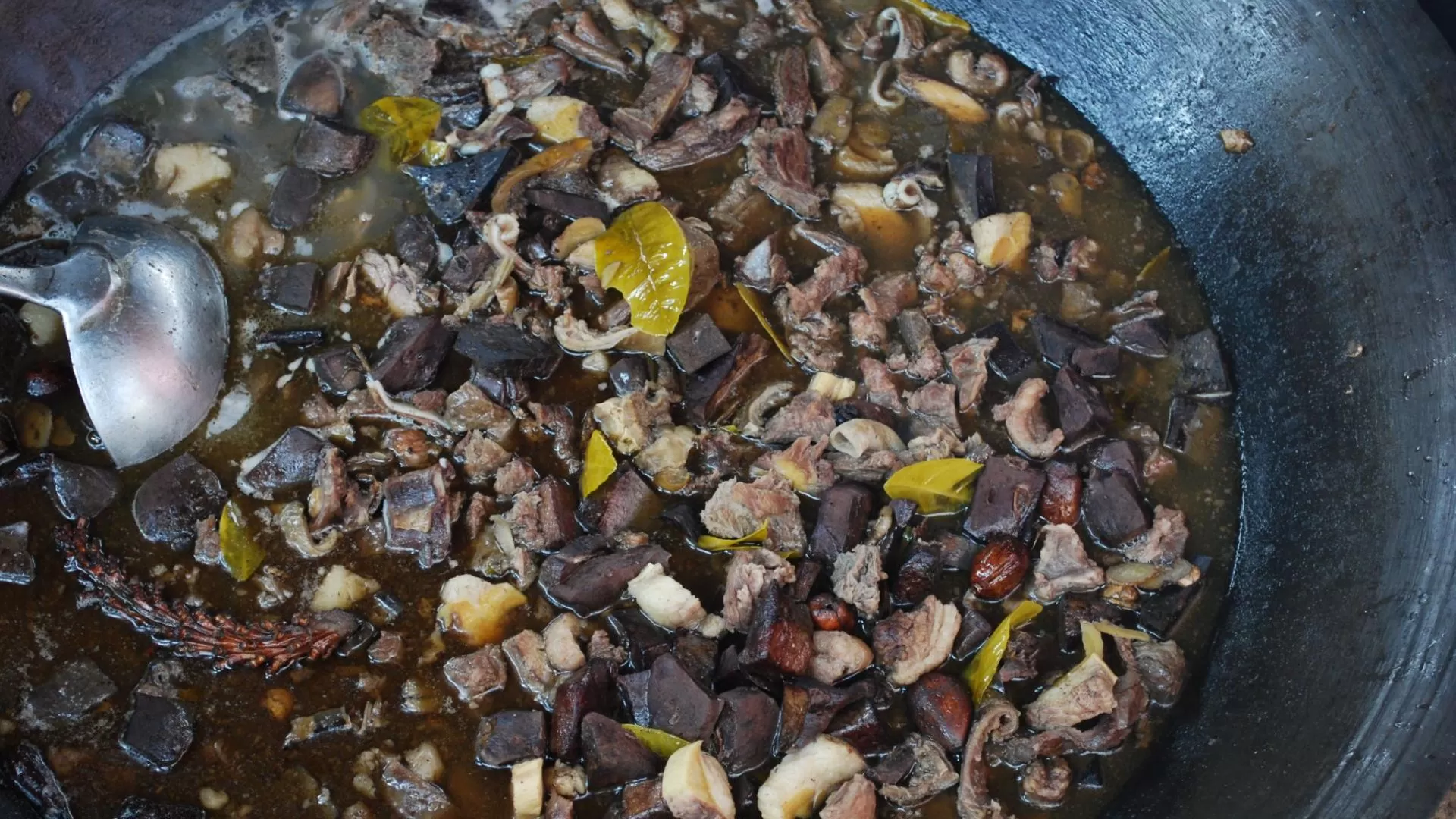
A traditional dish of the H’mong people, Thắng Cố is made from various parts of horse or buffalo, simmered with spices like cardamom and lemongrass. It’s a must-try for those wanting to experience local cuisine.
Banh cuon Trang Kin - Steamed rice rolls
Unlike other versions of “banh cuon”, Ha Giang’s rice rolls are often served with pork patties and a flavorful broth. The freshness of local herbs makes this simple dish truly special.
Tips for visiting tourist attractions in Ha Giang
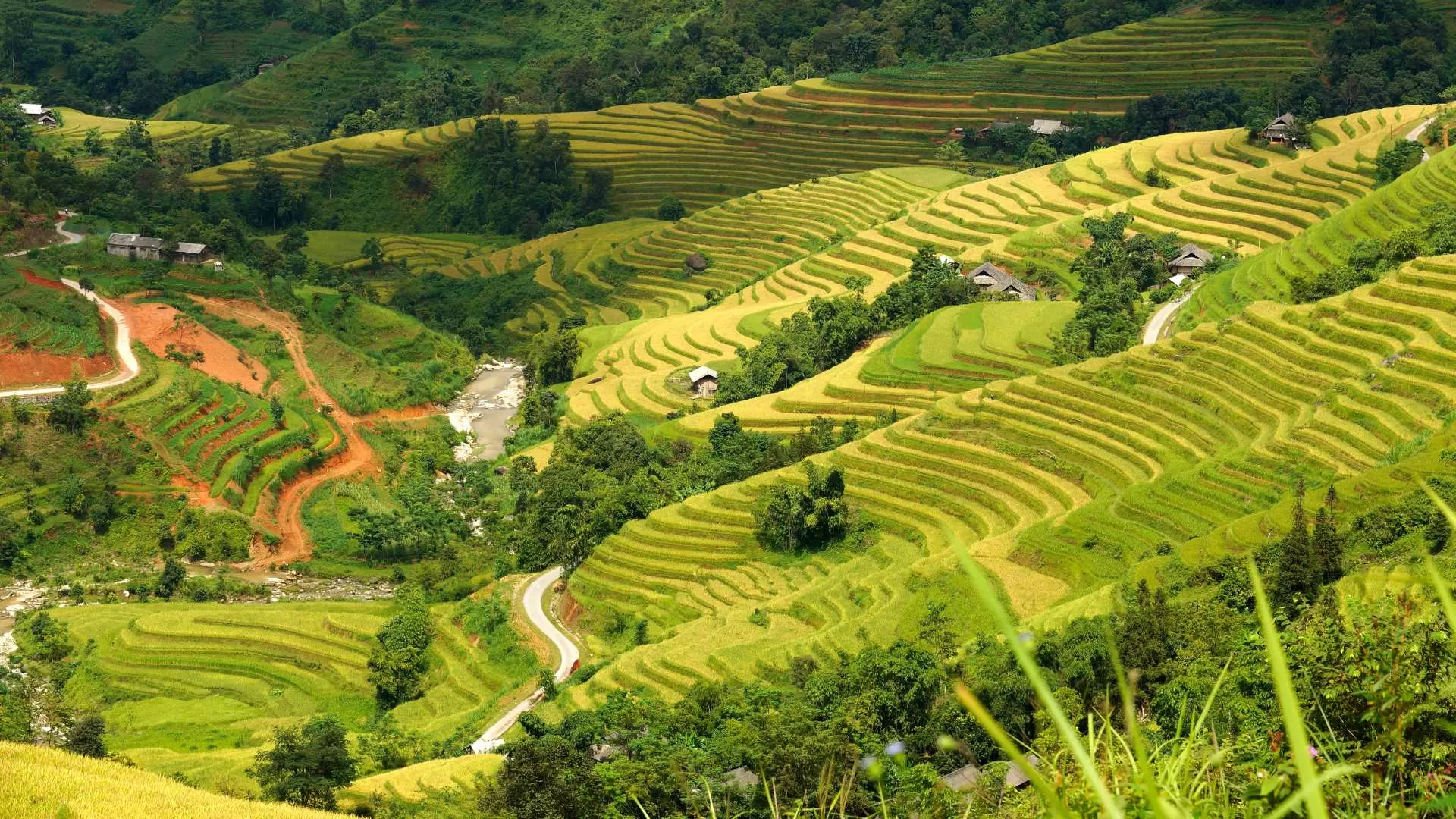
Visiting Ha Giang requires some preparation to ensure a safe and enjoyable trip. Here are some practical tips to help you make the most of your journey:
Best time to visit Ha Giang
Choosing the right time to visit Ha Giang can enhance your experience significantly. Depending on your interests—flowers, photography, or trekking—each season offers something special.
October – November: During these months, the hillsides bloom with pink and purple buckwheat flowers, creating stunning landscapes. The weather is cool and ideal for outdoor activities and photography.
September: September is when the rice terraces turn golden, offering breathtaking views. It’s a great time to see local farming life and enjoy the vibrant scenery.
March – May: This period features clear skies and mild temperatures, making it perfect for trekking and exploring. Roads are easier to travel, and the landscape is lush and green.
Each season reveals a unique side of Ha Giang, so choose the time that best fits your interests.
Prepare your physical condition and gear
Ha Giang’s rugged terrain demands a reasonable level of fitness, especially if you plan to trek or explore remote areas. Bring comfortable hiking shoes, layered clothing for variable weather, and rain gear. Don’t forget sunscreen, sunglasses, and a hat for sun protection during daytime.
Respect local cultures
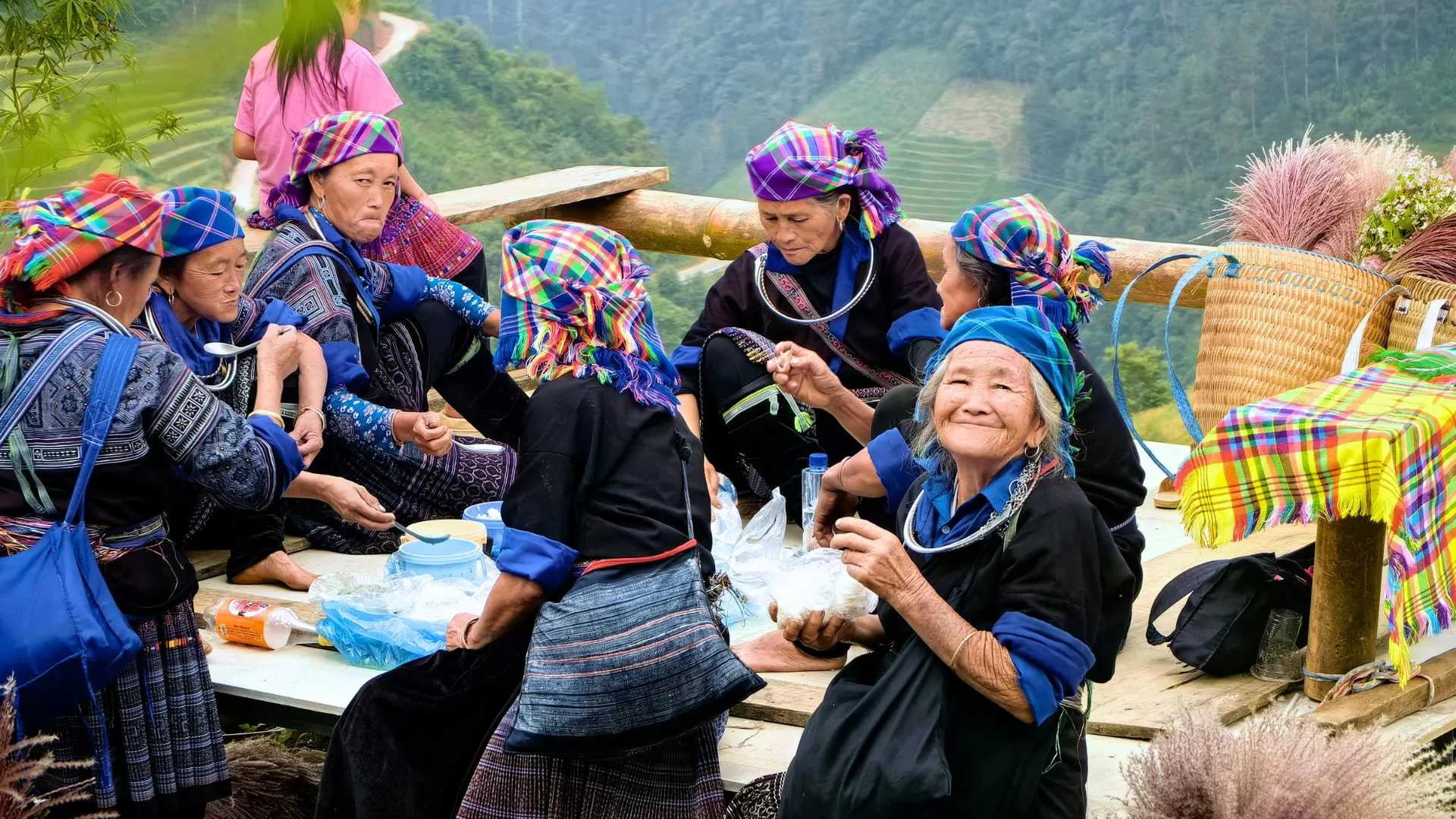
Ha Giang is home to diverse ethnic minorities with rich cultural traditions. When visiting villages, dress modestly and ask for permission before taking photos. Learn a few basic phrases or greetings in the local languages to show respect and connect with the community.
Stay connected and safe
Mobile signals can be weak or absent in some remote areas, so plan accordingly. Always inform someone about your travel plans and carry a basic first aid kit. Be cautious on mountain roads, especially during rainy or foggy weather.
Ha Giang offers far more than stunning landscapes — it invites you to experience vibrant ethnic cultures, breathtaking mountain views, and rich local traditions. Whether you’re trekking through rice terraces or navigating mountain passes, Ha Giang in Vietnam promises a travel experience that’s raw, real, and unforgettable.
Get ready to discover the wonders of Ha Giang with Hanoi Voyages. Start planning your adventure today.
Dream about your trip to Asia, in private
We are here to make it happen with youFREE QUOTE, WITHOUT OBLIGATION







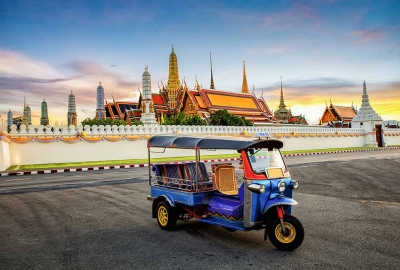

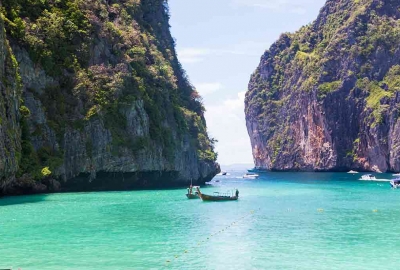
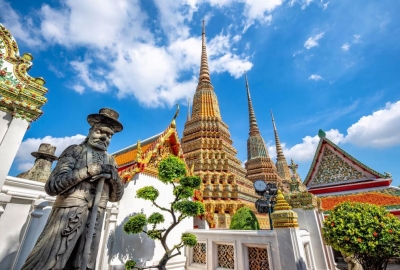
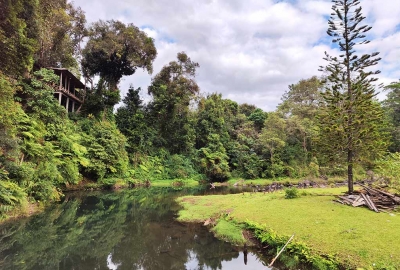
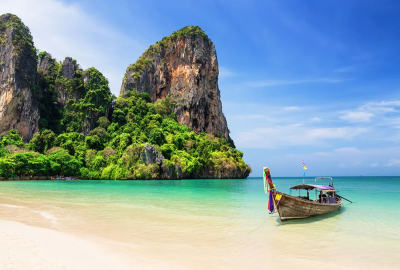

.webp)
